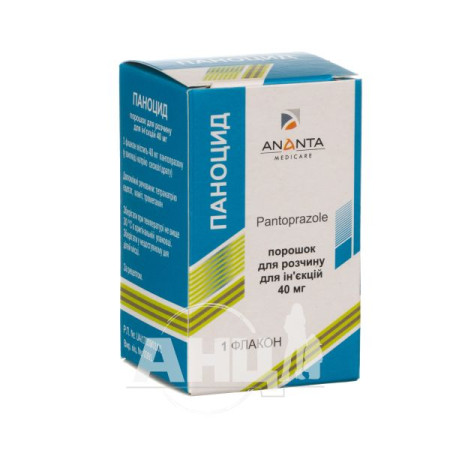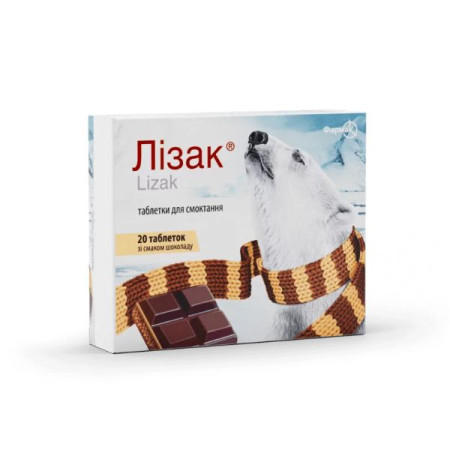Galazolin nasal drops solution 0.1% dropper bottle 10 ml

Instructions for use Galazolin nasal drops solution 0.1% dropper bottle 10 ml
Composition
active ingredient: 1 ml of solution contains 1 mg of xylometazoline hydrochloride;
Excipients: sodium chloride, sodium hydrogen phosphate dodecahydrate, sodium dihydrogen phosphate monohydrate, disodium edetate, benzalkonium chloride, sorbitol (E 420), purified water.
Dosage form
Nasal drops, solution.
Main physicochemical properties: colorless or almost colorless, transparent liquid.
Pharmacotherapeutic group
Drugs used in diseases of the nasal cavity. Sympathomimetics, simple drugs. ATX code R01A A07.
Pharmacological properties
Pharmacodynamics
Xylometazoline is an imidazoline derivative with sympathomimetic activity. It is a direct antagonist of alpha-adrenergic receptors.
The drug causes constriction of the blood vessels of the mucous membrane, eliminates edema, reduces hyperemia of the mucous membranes of the nasopharynx and the amount of exudate.
Pharmacokinetics
The drug begins to act after 5–10 minutes; its effect persists for 10 hours. The drug, applied to the nasal mucosa, causes local narrowing of blood vessels. The drug is usually not absorbed in clinically significant amounts and does not have a systemic effect.
Indication
Symptomatic treatment of nasal congestion due to colds, hay fever, other allergic rhinitis, and sinusitis.
To facilitate the outflow of secretions in diseases of the paranasal sinuses.
Adjunctive therapy in cases of otitis media (to eliminate swelling of the mucous membrane).
To facilitate rhinoscopy.
Contraindication
Hypersensitivity to any of the components of the drug.
Should not be used in patients after removal of the pituitary gland or after other surgical interventions involving the opening of the dura mater.
Atrophic inflammation of the nasal mucosa.
Acute coronary disease, coronary asthma, hyperthyroidism, angle-closure glaucoma.
Use simultaneously with monoamine oxidase inhibitors (MAOIs) and within 2 weeks after discontinuation of their use.
Interaction with other medicinal products and other types of interactions
There are known cases of interaction of xylometazoline with tricyclic antidepressants and MAO inhibitors. Galazolin® should not be used during treatment with these drugs.
The simultaneous use of xylometazoline with other sympathomimetic drugs (e.g. ephedrine, pseudoephedrine) should be avoided due to their synergistic effects.
Xylometazoline may affect the action of some antihypertensive drugs, such as:
β-blockers and some antidepressants, such as tricyclic or tetracyclic antidepressants. Concomitant use with β-blockers may cause bronchospasm or a decrease in blood pressure.
Application features
GALAZOLIN 0.1% should not be used in children under 12 years of age.
GALAZOLIN, like other sympathomimetics, should be prescribed with caution to patients with hypersensitivity to adrenomimetics, symptoms of which include insomnia, dizziness, tremor, cardiac arrhythmias, and arterial hypertension.
The drug should not be used in patients with chronic or vasomotor rhinitis, as they may use it for longer than 5 days.
Using the drug for longer than the recommended time may lead to secondary dilation of blood vessels and, as a result, to secondary rhinitis medicamentosa.
The cause of this disease is probably the inhibited release of norepinephrine from nerve endings through the excitation of presynaptic alpha-2 receptors.
It should be used with caution in patients with arterial hypertension and other diseases of the circulatory system, diabetes mellitus, prostatic hypertrophy, difficulty urinating, and thyroid diseases.
Doses higher than recommended should not be used, especially in children and the elderly.
GALAZOLIN should not be used during treatment with monoamine oxidase inhibitors and tricyclic antidepressants (see "Interaction with other medicinal products and other types of interactions").
Due to the content of benzalkonium chloride, the product may irritate the nasal mucosa.
The drug should be used with caution in patients with porphyria or existing pheochromocytoma due to the possible systemic sympathomimetic effect.
Patients with long QT syndrome who use xylometazoline may be at increased risk of serious ventricular arrhythmias.
Ability to influence reaction speed when driving vehicles or other mechanisms
The drug usually has no or minimal effect on the ability to drive or operate machinery.
Use during pregnancy or breastfeeding
GALAZOLIN should not be used during pregnancy due to its potential vasoconstrictor effect. There is no evidence of adverse effects on the infant.
Fertility: There are no adequate data on the effect of the drug on fertility. Since the systemic exposure to xylometazoline hydrochloride is very low, the likelihood of an effect on fertility is extremely low.
Method of administration and doses
The drug should be applied nasally. Before using the drug, the nasal cavity should be thoroughly cleaned. The last application is recommended immediately before bedtime.
Nasal drops GALAZOLIN 0.1% are prescribed to adults and children over 12 years of age.
Adults and children over 12 years of age: 2–4 drops in each nasal passage up to 3 times daily.
Apply no more than 3 times in each nasal passage per day.
The duration of treatment depends on the course of the disease and should not exceed 10 consecutive days.
For hygiene reasons, the medication pack should only be used by one patient.
Children
GALAZOLIN 0.1% should not be used in children under 12 years of age.
Overdose
Excessive topical application or accidental ingestion may result in severe dizziness, sweating, a significant decrease in body temperature, headache, bradycardia, arterial hypertension, respiratory depression, coma, and convulsions. After an increase in blood pressure, its decrease is possible. Young children are more sensitive to toxicity than adults.
When more than 0.2 mg/kg of the drug is administered, symptoms such as fatigue, rapid heartbeat and increased blood pressure may occur. Very rarely, in severe overdose, especially in children (for example, in case of accidental ingestion of high doses of the drug), stages of stimulation and depression of the central nervous system and cardiovascular system may alternate. Symptoms of central nervous system stimulation may include anxiety, agitation, hallucinations and in severe cases - convulsions. Symptoms of central nervous system depression may include a decrease in body temperature, lethargy, drowsiness and in the most severe cases - coma.
Symptoms such as constriction or dilation of the pupils, sweating, pallor, cyanosis, nausea, tachycardia, bradycardia, arrhythmia, asystole, decreased blood pressure, circulatory disorders, pulmonary edema, respiratory disorders, and apnea may also occur.
Overdose, especially in children, can have significant effects on the central nervous system, including convulsions, coma, bradycardia, apnea, and an increase in blood pressure, which is subsequently replaced by a decrease.
Treatment. All patients with suspected overdose should be given appropriate supportive measures and, if necessary, immediate symptomatic treatment under medical supervision. Medical care should include observation of the patient for several hours. In the case of severe overdose accompanied by cardiac arrest, resuscitation measures should last at least 1 hour.
Treatment of severe overdose (>1 mg/kg, which for children weighing 20 kg corresponds to the content of 4 vials of the drug) should preferably be started within 1 hour after ingestion. For the treatment of convulsions, use anticonvulsants such as benzodiazepam, for lowering blood pressure - non-selective α-blockers (e.g. doxazosin, terazosin). The use of vasoconstrictors is contraindicated. Atropine should be used only in the case of clinically pronounced bradycardia, accompanied by a decrease in blood pressure.
Adverse reactions
The following are the undesirable effects associated with the use of xylometazoline.
Immune system disorders: hypersensitivity reactions, including angioedema, rash, itching.
On the part of the circulatory system: palpitations, tachycardia, arrhythmia, arterial hypertension (especially in people with circulatory system diseases).
Nervous system: headache, drowsiness, anxiety, insomnia, fatigue, hallucinations, convulsions (especially in children).
Respiratory, thoracic and mediastinal disorders: sneezing, dryness or discomfort of the nasal mucosa.
Use of the product for a period longer than recommended and/or in doses higher than recommended may lead to secondary drug-induced inflammation of the nasal mucosa.
General disorders and administration site conditions: nausea, fatigue, feeling of weakness, increased swelling of the nasal mucosa after discontinuation of the drug, nosebleeds.
Irritation of the nasal mucosa, a burning sensation in the nose and throat may occur.
On the part of the organs of vision: transient visual impairment.
Expiration date
4 years.
The shelf life after first opening the bottle is 12 weeks.
Storage conditions
Store in the original packaging at a temperature not exceeding 25 ° C. Keep out of the reach of children.
Packaging
10 ml of 0.1% in polyethylene dropper bottles with tamper-evident No. 1 in a cardboard box.
Vacation category
Without a prescription.
Producer
Warsaw Pharmaceutical Plant Polfa JSC.
Location of the manufacturer and its business address
St. Karolkova 22/24, 01-207 Warsaw, Poland.
There are no reviews for this product.
There are no reviews for this product, be the first to leave your review.
No questions about this product, be the first and ask your question.


















